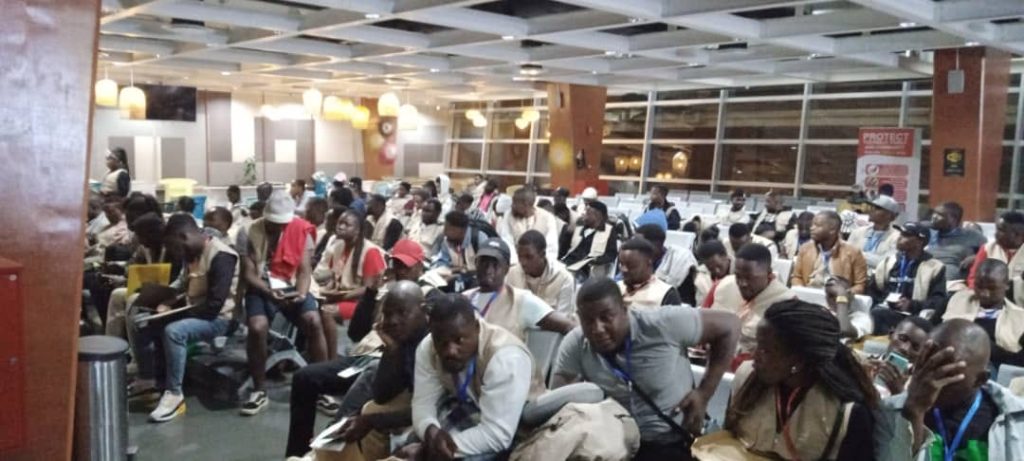Malawi Government says it has developed a 10-year Malawi Action Plan on Fertiliser and Soil Health projected to cost $163 million (about K285.7 billion) to localise a continental framework.
The initiative seeks to improve soil health, usage of organic and inorganic fertilisers, soil productivity as well as reduce soil degradation and erosion.
From L-R: Chakwera with Hichilema, Kenya’s opposition leader Raila Odinga and President William Ruto
President Lazarus Chakwera unveiled the project in Nairobi, Kenya on Thursday in his address to the Africa Fertiliser and Soil Health Summit. He said Malawi was affected by the crisis of degraded soils and has been experiencing diminishing harvests over the past years.
The President said efforts to improve access and use of inorganic fertilisers have led to an increase in the national food production output, but some farmers have not benefited as desired due to poor soil health.
Said Chakwera: “By implementing the plan, we will reverse the negative trend in the deterioration of our soil health through a set of interventions that have been outlined in the action plan.
“Through our action plan, costing approximately $163 million, we will leverage existing programmes by government and other stakeholders with our development partners’ support to ensure swift and effective implementation.”
He said that through the plan, Malawi will act as a food basket for other countries without arable land, fresh water and agricultural human capital we have.
Chakwera said studies show that in parts of Malawi the effectiveness of inorganic fertiliser plummeted by approximately 70 percent between 2014 and 2022 due to soil degradation and worsened by climate change impacts like cyclones and drought.
The summit was held to deliberate on Africa’s recent widespread decades-long decline in soil quality of farmland that negatively impacts the agricultural production capacity and food security on the continent.
The African Union through its website said: “The decline in soil health has hindered the efficiency of fertiliser use and hampered agricultural productivity growth, food security and environmental sustainability across the continent.
“As a result, economic growth and well-being, particularly for the rural population who derive their livelihoods directly from agriculture in the continent, have been hampered.”
In his remarks, Zambia’s President Hakainde Hichilema urged African leaders to increase the capacity to produce fertiliser.
“In Africa, we shouldn’t depend on others to supply us with fertiliser, from outside the continent; therefore, we need to invest on our continent to increase the capacity to produce fertiliser using our raw materials. The continent has these raw materials,” he said.
The summit endorsed a 10-year Action Plan for Africa outlining recommendations for African leaders and stakeholders to “significantly increase investments in the local manufacturing and distribution of mineral and organic fertilisers, biofertilisers and biostimulants” and to triple fertiliser use from 18 kilogramme (kg) per hectare (ha) in 2020 to 54 kg per ha in 2033.
The plan focuses on providing new policies and investments that will enable farmers to work toward re-building soil health and ultimately increase yield responses and profitability of fertilisers.
The post Malawi develops K285.7bn soil health plan first appeared on Nation Online.
The post Malawi develops K285.7bn soil health plan appeared first on Nation Online.
 Moni Malawi
Moni Malawi 

